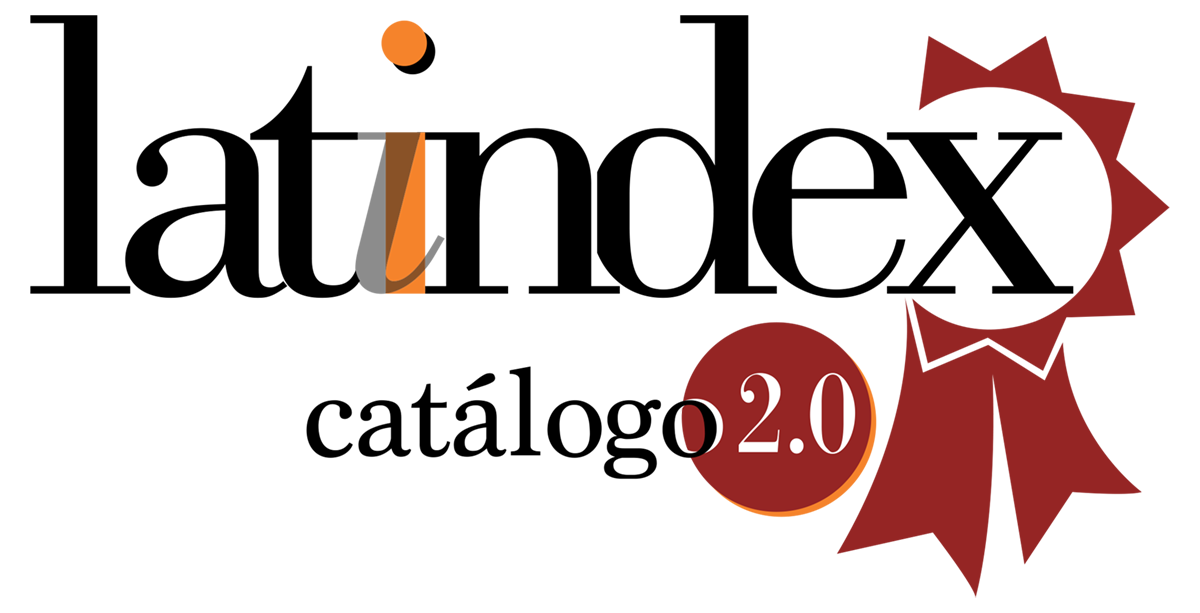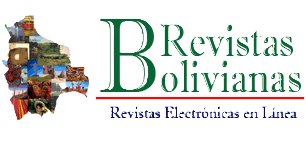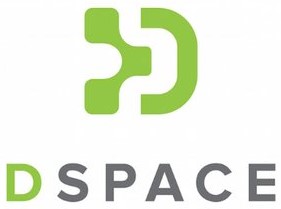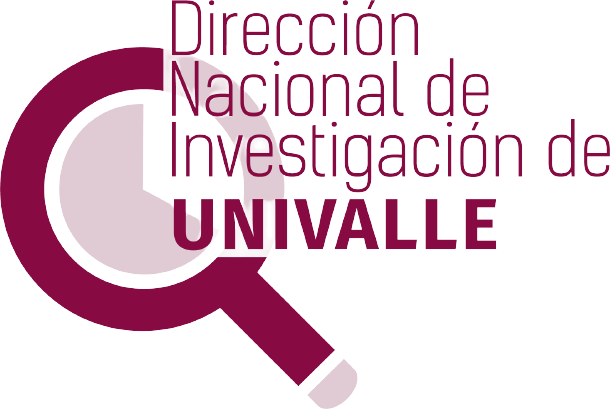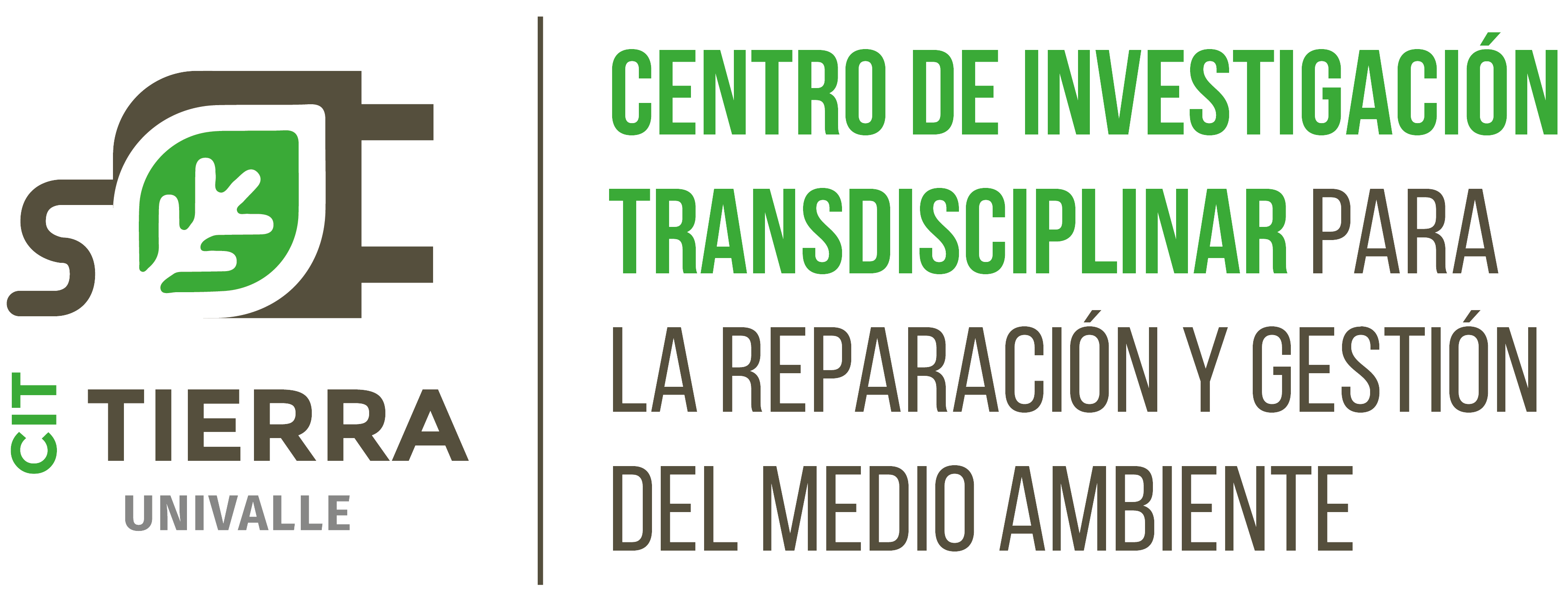Problem Strategies for Achieving Competence in Teaching - Learning Process Design and Analysis of Algorithms
DOI:
https://doi.org/10.52428/20758944.v10i32.733Keywords:
lnformation Systems, lnformation technology and communication, Analysis and design of algorithms, lnformation processingAbstract
The focus on skills for the teaching-learning process is based on three types of knowledge: learning to know, learning to do and learning to be. Problem teaching has proven effective in improving educational training in the last decades, is based on the contradiction between the known and the unknown; for structuring the content (learning to know), contributing to the formation of values (learning to be) and the students' performance (learning to be). The knowledge society requires systems more useful, accurate and effective in making good decisions. An information system processes data problem and get information that may help salve it. Computer is an information processing system of information processing which needs algorithms to process information. An algorithm is a sequence of ordered steps and unambiguously that when executed systematically will salve a problem. The main reason for the engineering student far learning analysis techniques and designing algorithms is to use the computer as a tool to salve problems. Problem solving requires at least the following steps: define and analyze the problem, design the algorithm, the algorithm transforming program, implement and validate the program.
Downloads
References
(1) Danilov M. A.y Skatkin M. N. Didáctica de la escuela media, Cuba, 1985.
(2) Ausebel, David The psychology of meaningful verbal learning, New York, 1963.
(3) Ortiz, Alexander Métodos y estrategias problémicas, Barranquilla Colombia, 4 de octubre de 2005, http://www.monografias.com/trabajos26/metodosproblemicos/metodos•problemicos.shtml, (17 de abril de 2014).
(4) González Walfredo y Estrada Vivian. Problematización de la enseñanza de la informática, 2 de junio de 2003, http://www.monografias.com/trabajos13/artdos/artdos.shtml, (20 de abril de 2014)
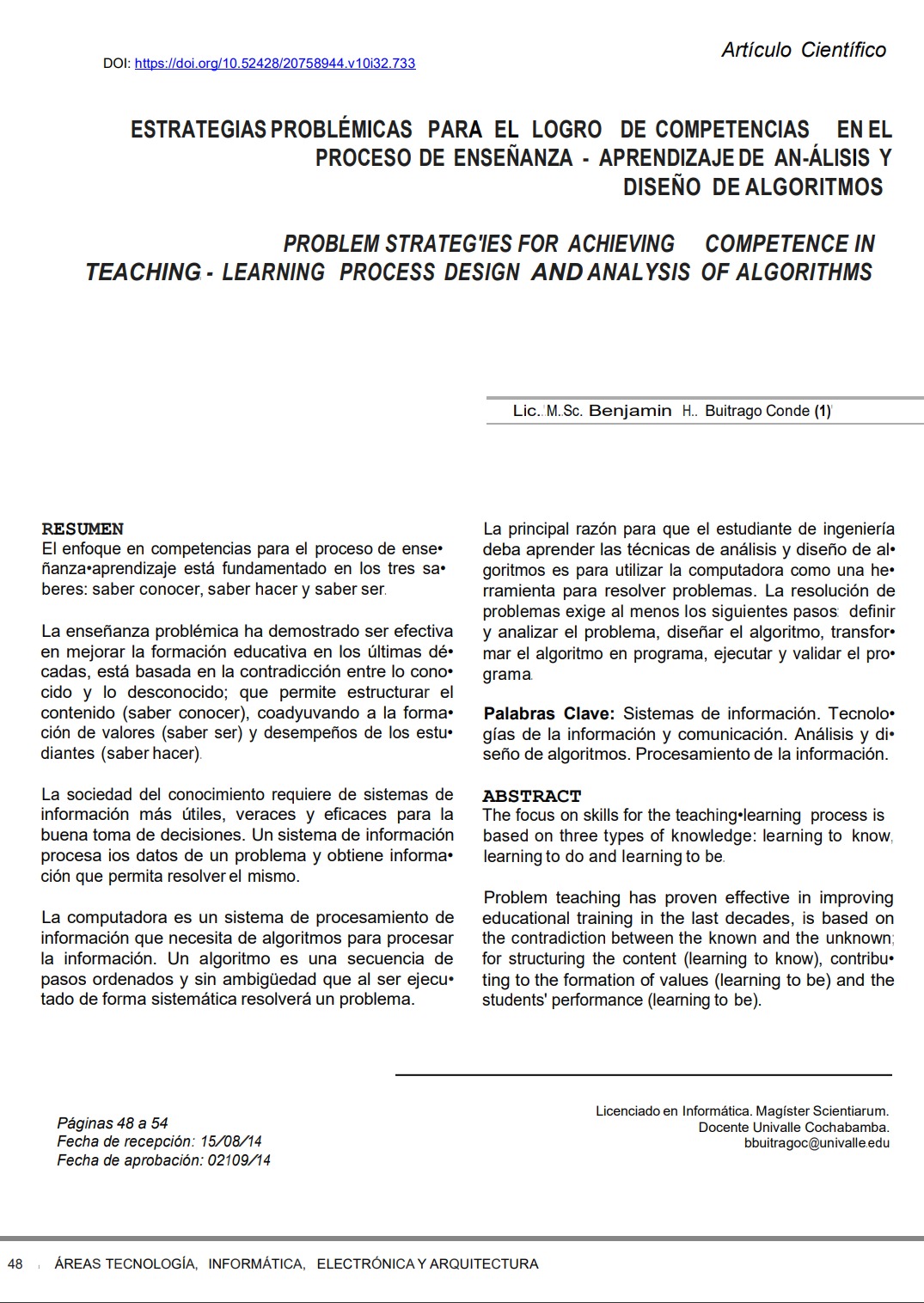
Downloads
Published
How to Cite
Issue
Section
License
Copyright (c) 2014 Benjamin H. Buitrago Conde

This work is licensed under a Creative Commons Attribution 4.0 International License.
Authors who publish with this journal agree to the following terms:
- Authors retain copyright and grant the journal right of first publication with the work simultaneously licensed under a Creative Commons Attribution License 4.0 that allows others to share the work with an acknowledgement of the work's authorship and initial publication in this journal.
- Authors are able to enter into separate, additional contractual arrangements for the non-exclusive distribution of the journal's published version of the work (e.g., post it to an institutional repository or publish it in a book), with an acknowledgement of its initial publication in this journal.
- Authors are permitted and encouraged to post their work online (e.g., in institutional repositories or on their website) prior to and during the submission process, as it can lead to productive exchanges, as well as earlier and greater citation of published work.





